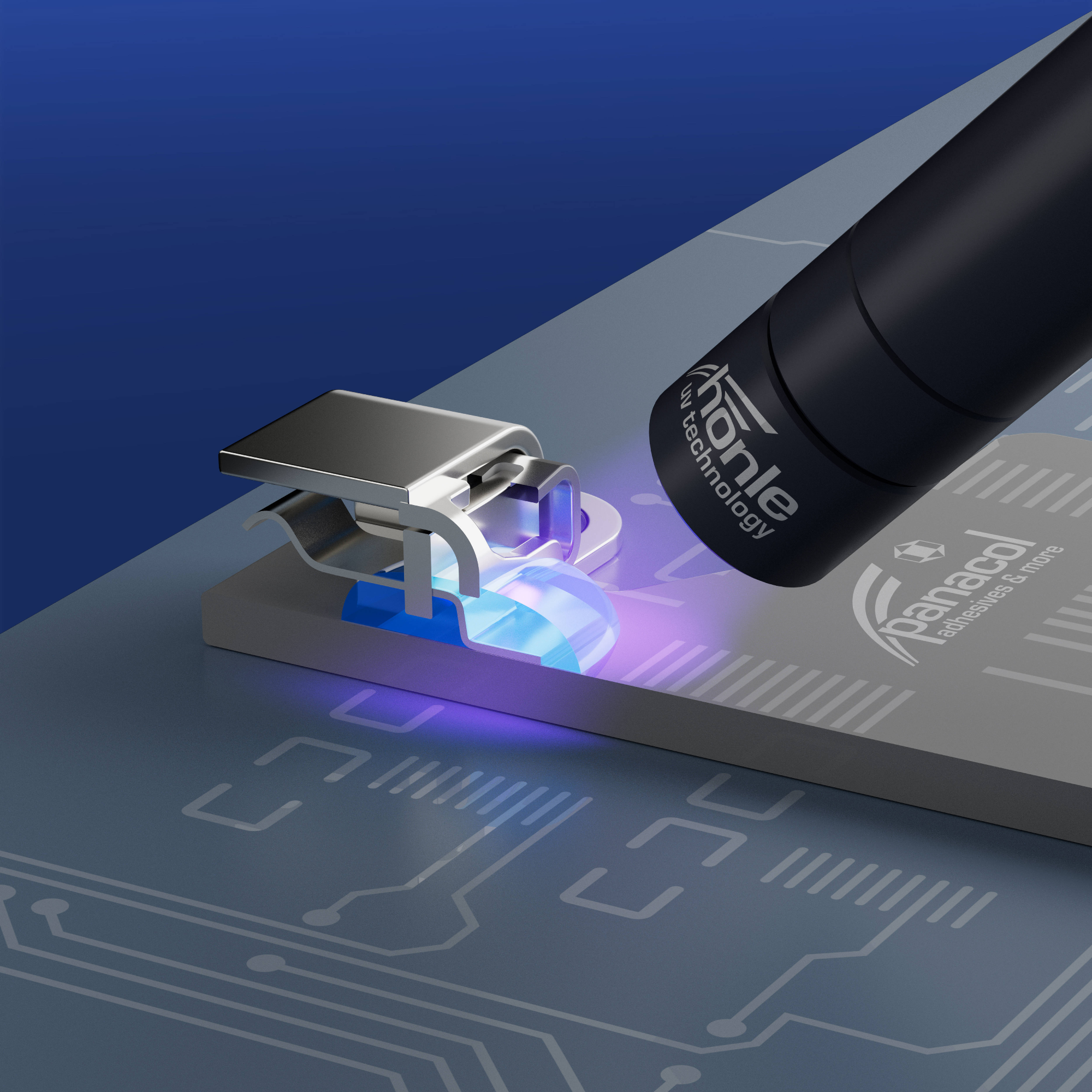From Hoenle AGReviewed by Danielle Ellis, B.Sc.May 16 2023
With the introduction of Vitralit® UD 8055 and Vitralit® UD 8056, Panacol continues to expand its portfolio of dual-curing acrylic adhesive systems. These adhesives principally cure with UV light. They also possess a secondary moisture post-cure mechanism to compensate for shadowed areas. A special characteristic of these two adhesive systems is their high glass transition range of over 100°C, which helps to preserve high-strength bonds through thermal cycling stress.

Image Credit: Vitralit®
Vitralit® UD 8055 and Vitralit® UD 8056 are ideal for use as encapsulants that provide environmental protection to sensors and PCB components. They can also be used for bonding dissimilar substrates including many plastics and metals where undercuts or geometry-related cavities are present. This is precisely where they demonstrate their dual-cure advantage. The secondary moisture cure mechanism overcomes the challenge of shadowed bond lines and ensures a reliable bonding process.
In the primary UV curing process, the bonded areas in the component are fixtured in seconds by UV light. LED curing systems can be used possessing wavelengths of 365 or 405nm. LED systems do not require any warm-up phases and thus enable the shortest cycle times. LED and UV pioneer Dr. Hönle offers a broad selection of spot and flood-style systems that are optimally matched to Panacol's adhesives and can be individually adapted to the application requirements.
In the secondary post-curing process, uncured monomers crosslink in shadowed areas by atmospheric moisture without stress and the need for secondary thermal exposure. This technology enables fast cycle times and high-volume production without subjecting temperature-sensitive electronics or components to excessive thermal stress.
A high glass transition range (Tg) is particularly important when encapsulations and bonded substrates must withstand thermal stress over long periods of time. Exceeding 100°C, the Tg of Vitralit® UD 8055 and Vitralit® UD 8056 ensures that thermal expansion coefficients behave homogeneously in the application area. This prevents the adhesive from losing bond strength and creating excessive stress between components which can lead to delamination or cracking in the electronics. Vitralit® UD 8055 and Vitralit® UD 8056 were primarily developed for the production of sensors, PCBs and flex PCBs that are used in consumer and automotive electronics. These components are usually designed for use up to 100°C, making acrylate systems with a Tg above 100°C the ideal solution for such applications.
Vitralit® UD 8055 and Vitralit® UD 8056 achieve high adhesion with typical substrates such as FR4, PC and PBT. Vitralit® UD 8055 has demonstrated very reliable adhesive performance through challenging 85/85 aging tests. Vitralit® UD 8056 is particularly impressive for its performance on LCP and has passed UL94 HB tests. With depth of cure that exceeds several millimeters, these two low-halogen adhesives can be used in a wide range of electronic assembly applications.